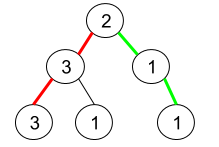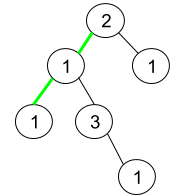1457. Pseudo-Palindromic Paths in a Binary Tree
Problem Statement

Intuition
Links
Video Links
Approach 1:
Approach 2:
Approach 3:
Approach 4:
Similar Problems
Previous1239. Maximum Length of a Concatenated String with Unique CharactersNextCopy of Copy of Copy of Copy of Template
Last updated
